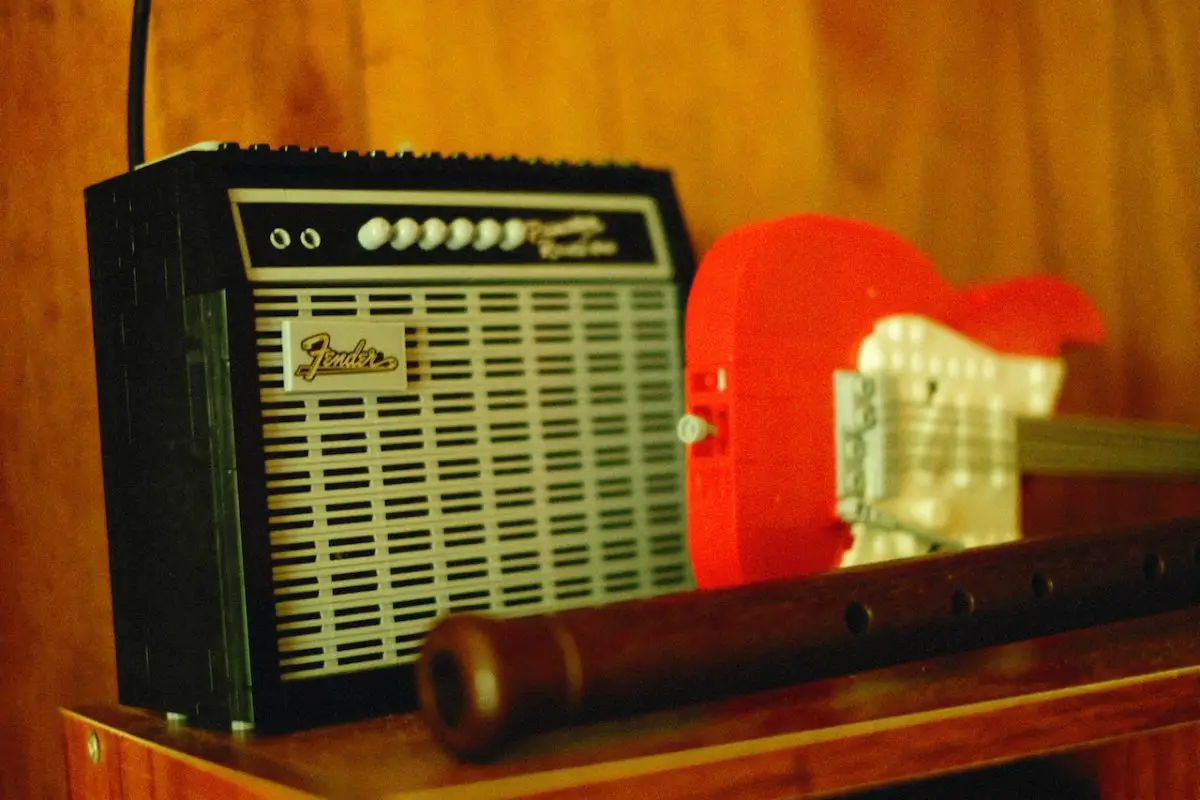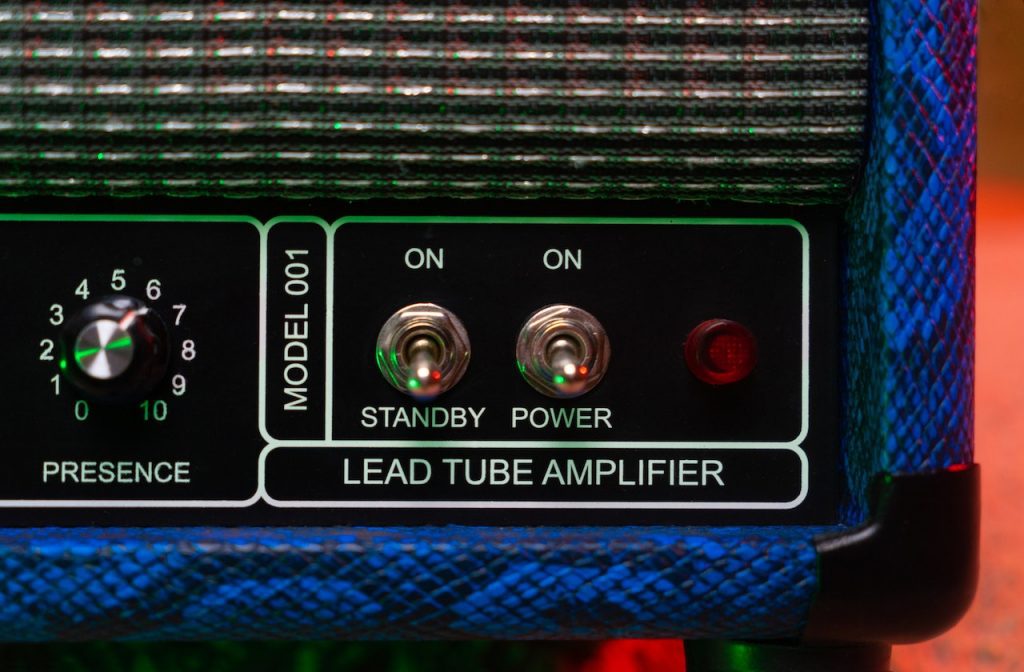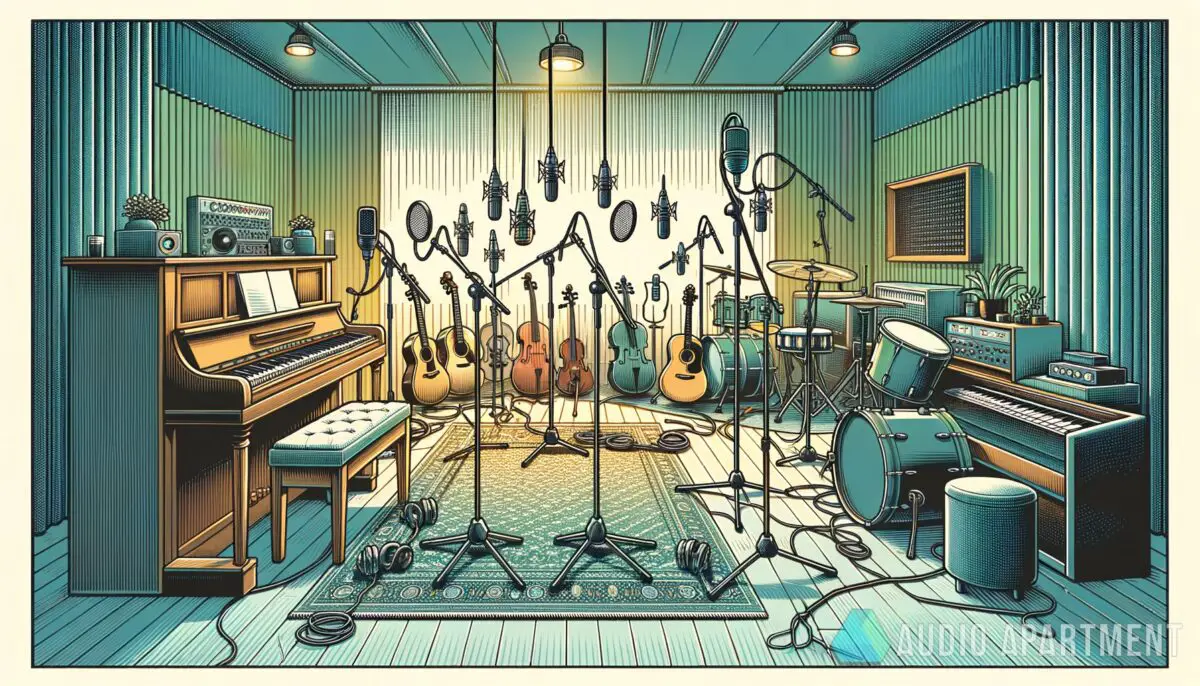If you’ve ever experienced an amp that pops and crackles, you’re not alone. Amps are delicate pieces of equipment and can be affected by a variety of factors. But what causes amplifiers to pop and crackle?
In this post, we’ll explore the reasons why amps can sometimes experience this kind of issue and what you can do to prevent it from happening in the future. So if you’re having these issues or are just curious about what causes them, this post is for you!
What causes amps to pop and crackle? Amps can pop and crackle due to various reasons, such as worn-out or faulty tubes, dirty or damaged pots and switches, or loose cables and connections. These issues can create electrical noise and interference, resulting in audible pops and crackles in the sound output of the amp.
Possible causes of popping and crackling in amps
Possible causes of buzzing and static in an amplifier can vary. Here are a few reasons why you hear it in your amp:

1. Rumbling crackle
A damaged output tube is probably to blame if the noise is comparable to a rumble. Lightly tap each tube with a pencil, drumstick, or another non-conductive wooden instrument.
The crackle’s origin may be the issue. Changing it out will fix the issue immediately. To get the finest results from your amplifier, however, consider replacing all of the power tubes at once since it is recommended that power tubes of similar age and manufacturer be used together.
2. Glassy or a high pitch crackle
If the cracking is more high-pitched or has a “glassy” quality, the preamp tubes are likely to be the culprit. Tap each tube gently with a pencil, starting with the one closest to the output tubes. You should replace the one that crackles since it is probably the cause of the issue.
3. Static crackling noises
Static-like crackling might be caused by interference or dirty connections. Carefully inspect all of the plugs and tube sockets. To avoid the static-y crackling noises that dirty connections make, you should clean them all.
4. Random crackling and popping
If your amplifier is making crackling and popping sounds out of the blue, the power tubes are likely broken. Simply put, you’ll need to replace each tube with a spare. If it doesn’t work, you’ll need to have a technician swap out the preamp’s plate or cathode resistor.
5. The connection of the speakers and the amplifier
An improper amplifier-to-speaker connection might be one possible source of interference. The easiest fix is to change the wire or connection between the amplifier and the speaker.
If you hear cracking in your amplifier, here is the first place you should look. It may be frustrating to disassemble your amp piece by piece, replace components, and then discover that a bad wire was the root of the issue.
6. Soldering error
A piece of solder may have come away, causing an irregular connection. Inspect any joints that seem to be soldered to check whether they are secure or have a “cold” appearance.
A cold solder junction can be seen because the contacts on the surface look “lumpy” or “coarse.” Cheaper amplifiers, which are usually made with a printed circuit board, may not have the best soldering jobs because they are not as well made. To rule out bad solder as the cause of the crackling from your amplifier, you must first locate the noise source.
AKAI Professional MPK Mini MK3

AKAI Professional MPK Mini MK3
How do you fix an amp that’s experiencing pop and crackle?
To fix amp buzz, you first need to find the root cause. Sometimes, the problem isn’t with your amplifier. It could be with your guitar or even your cables. Here are six things you could do to fix amp buzz.
1. Replug the guitar and amp cables
If your guitar amp is buzzing, try reconnecting the instrument and amp at the jack. The amp’s sound may be distorted if the audio jack isn’t securely fastened.
Before troubleshooting the amp, make sure your instrument is functioning correctly. For example, a distorted guitar signal often results from a poorly connected instrument to the amplifier. Try plugging in a different guitar to the amp to see if the issue persists, or take the amp to a music store to test it out with several instruments.
2. Replace the cables
Cables may have many flaws that develop over time. For instance, a bent cable can cause static, and a bare wire can worsen it. On the other hand, a simple, affordable cable repair might make the buzzing go away soon. To determine whether the buzzing is caused by the cable or anything else, try switching to a different cable and see if the problem goes away.
Plug the jack into the amplifier and push the button on the other end to double-check. A crackling should not be heard, but a buzz should be there. The crackling sound suggests that the cable has a problem.
Press your thumb on the jack while it’s attached as the last step. If there is a noticeable change in sound, it may be due to a faulty cable or guitar jack. It’s important to get cables with sturdy connection jacks that will only bend or break slowly.
3. Check the power cord
Inadequate electricity from a faulty power cable is a common cause of amp buzzing. Look at the cable you’re using, and swap it out for something beefier that can carry more juice to the amplifier.
After being subjected to so much abuse, it’s only natural for cables to fail. Two common causes of malfunctioning power cables are the cable itself or the connection. Either way, you’ll have to try a different power cable before you can tell whether anything has changed.
Before purchasing a new cable, test it by jiggling it while it’s plugged into the amp and your instrument to see whether it produces any sound. We also utilized this method to look find the guitar’s connection. Assuming that the amplifier wire is not the source of the buzzing, the power cable is the next most likely culprit.
4. Clean out the audio jacks
When playing via an amplifier, static noise may be exacerbated by dirty input jacks. A cotton swab sprayed with a cleaning solution may remove dust and grime. Insert the swab and swipe it within the opening several times. It must be washed and rinsed many times to clean the insides. Wait an hour and then reconnect the power.
If the sound quality improves after cleaning the jacks, then the humming or cut-outs are likely caused by dirt.
In addition to guitar jacks, amp jacks are another major source of trouble since dust had gathered inside the jack. A higher performance might be expected after a thorough cleaning. Putting a few drops of rubbing alcohol on a Q-tip and rotating it in the amp jacks is a quick and simple technique to clean the jacks.
Once you remove the Q-tip, you should notice a good deal of grime has settled onto it. Wait an hour or two after cleaning up to play your electric guitar again. If the sound quality improves after cleaning the jacks, then the humming or cut-outs are likely caused by dirt.
5. Clean the pots in the amp
The buildup of dust and filth on your guitar’s pots might result in excessive static via the amp. Once you’ve cleaned the switches using an electric contact cleaner, test their functionality by turning the knobs in various directions.
When the amp and guitar are not used for long periods, the sound may cut out because the pots have dried up. Many things, such as out-of-whack tuning or built-up dirt and filth, might result in poor audio quality. If you hear distortion as you adjust the knobs, the pots are probably at fault. Using an electric contact cleaner to clean them is a quick and easy process.
Use a product like WD-40, which may clean electrical components while leaving behind no harmful residues. You’ll need to take apart the amplifier for this, but a guide for your model should be easy to locate on the Internet.
6. Resolder the connections
Broken solders on circuits may also cause sound disruptions and buzzing from amplifiers. Sound quality might degrade or even go out if wires become disconnected or loose. Re-solder the disconnected components using a soldering iron.
If the previous suggestions have failed, this is likely the cause. Many environmental and mechanical stresses may cause soldiers to fail. You will want specialized equipment, such as a soldering iron and a solder sucker. I advise against doing such fixes unless you have previous expertise with them. For example, an amp’s buzz may be fixed by soldering the circuit together. However, this work is best left to experts.

Prevention tips for amps that experience popping and cracking
The average life expectancy of an amplifier is 10,000 hours. Therefore, it is recommended that you get them serviced once every two years. Unfortunately, most guitarists believe it is only when things get tough that they must take their amp in for repairs. Therefore, the amp eventually dies of old age.
In other words, if an issue emerges, you’ll need to replace them entirely since it can’t be fixed. Additionally, after each usage, the amplifier has to be cleaned, the nuts should be tightened, and the amp should be stored under a cover.
The amplifier has to be stored in a dry area, away from moisture, to prevent corrosion. You may also stockpile extra resources in case of an emergency. Overall, it would be best if you kept up with the amp’s maintenance schedule. To avoid any potential harm or annoying crackling, do this.
If you want even more tips and insights, watch this video called “Crackling amplifier” from the Groundbreak Creative YouTube channel.
Frequently asked questions (FAQ)
Do you still have questions about the causes of amps to pop and crackle? Below are some of the most commonly asked questions.
How do I stop my amp from crackling?
If your amplifier only crackles when you change the volume, carbon dust may have built up on the potentiometer. Electronic cleaning spray may be used as a fast, temporary solution. However, getting a replacement knob from the manufacturer is a better long-term solution.
What happens if an amp gets too hot?
As a safety measure, it turns off if it becomes too hot. The Gain and Punch Bass controls are the first to check. In addition, amplification systems often include a gain adjustment (or control) to fine-tune the amplifier’s output level to the electrical component(s) utilized in the preamplifier stage.
What does a blown amp sound like?
A blown amp can produce various sounds, depending on how it is damaged. However, a common sign of a blown amp is a buzzing or scratching noise that is usually unpleasant to hear. Additionally, a blown speaker in a guitar amp, bass amp, or PA system can cause major problems for musicians, which may threaten a gig or a session. In some cases, there may be no sound coming out of the amp at all, while in others, the amp may produce normal sound but at a very low volume. Ultimately, the type of sound produced by a blown amp depends on what part of the amplifier has been damaged and the severity of the damage.
Conclusion
That’s all, folks! Now that you know the possible reasons behind this issue, you can keep your ears open when your favorite amp experiences a crackling sound. Sometimes the source of this problem is easy to find, while others require a deeper inspection. To prevent cracks in the future, always check for any physical flaws around the amp and use proper care.
So, what do you do when your amp pops or crackles? And did I cover everything you wanted to know? Let me know in the comments section below (I read and reply to every comment). If you found this article helpful, share it with a friend, and check out my full blog for more tips and tricks on music production. Thanks for reading, and never stop making music.
Key takeaways
This article covered the causes of amps to pop and crackle. Here are some key takeaways:
- Possible causes of buzzing and static in an amplifier include a poor connection, filthy jacks, a lack of power, or a solder connection that has cracked.
- To fix amp buzz, you first need to find the root cause.
- The average life expectancy of an amplifier is 10,000 hours.
- A loose, defective, or unclean wiring connection between your amplifier and the speaker terminals or inside the speaker itself between the terminals and the driver is the primary cause of crackling in your amp.
- When you flip the switch and put your amp on standby, you remove the power supply’s high-voltage part.















